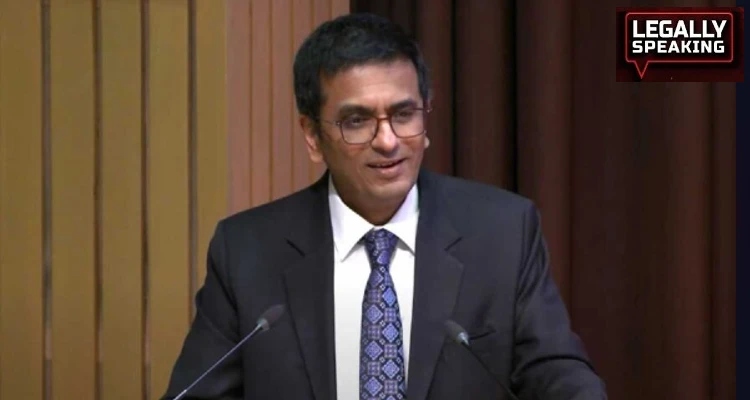
Chief Justice of India D Y Chandrachud has expressed concern over the recent trend among lawyers to publicly discuss pending cases or judgments, stating that while the judiciary can accept both praise and criticism, such actions are troubling.
Addressing the centenary year celebration of the High Court Bar Association of Nagpur, the CJI emphasized that office-bearers and members of the bar must remember their role as officers of the court, rather than as laypersons.
Justice Chandrachud underscored the vital link between the independence of the judiciary and the independence of the bar, noting that the bar, as an institution, plays a crucial role in upholding judicial independence, constitutional values, and the dignity of the court.
“We must not forget, however, that there is a close link between the independence of the judiciary and independence of the bar,” the CJI stated.
In acknowledging India’s vibrant democracy where individuals often hold political ideologies, he quoted Aristotle’s observation that humans are inherently political beings, with lawyers being no exception. However, he stressed that the highest allegiance of members of the bar should lie with the court and the Constitution, rather than partisan interests.
“To quote Aristotle, human beings are political animals. Lawyers are no exception. However, for members of the bar, one’s highest interest must not lie with partisan interests but with the court and the Constitution,” CJI Chandrachud remarked.
Highlighting the rigorous process and commitment to constitutional principles involved in Supreme Court judgments, the CJI asserted that once a judgment is delivered, it becomes public property. He affirmed the judiciary’s readiness to receive both praise and criticism, whether through journalistic pieces, political commentary, or social media.
Nevertheless, he expressed concern over the recent tendency of bar association members to comment on pending cases and judgments. He reminded them of their primary role as officers of the court, emphasizing that the truth and dignity of legal discourse rest in their hands.
Concluding his remarks, the CJI reiterated the inclusive nature of India’s Constitution, designed to embrace people from all walks of life, including “the butcher, the baker, and the candlestick maker.”




